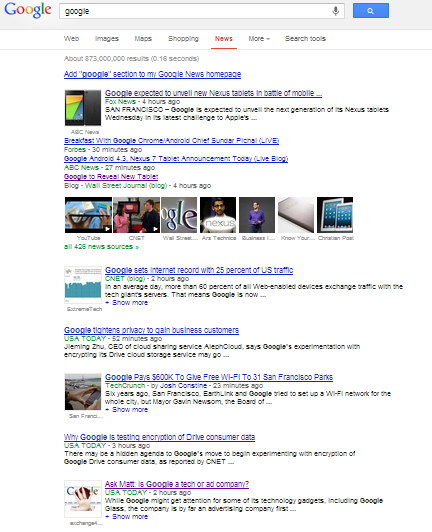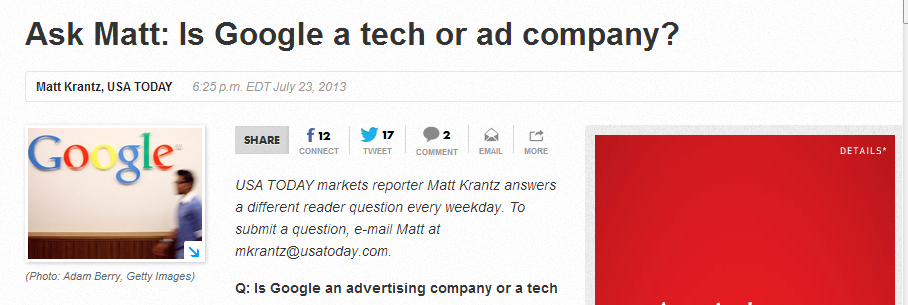Members of the search marketing industry recently brought it to Google’s attention that some news providers were scoring prime spots in Google News SERPs even though their content had become outdated. Specifically, these concerned SEOs and content marketers noted that USA Today stories featured timestamps on results pages that didn’t correlate with their actual publication.
In a Google Product Forums thread, officials from the search engine said this is just a glitch that’s being looked into. For the meantime, users are advised to personalize their search settings to receive results from suspect domains “rarely.” If these allegations reflect sites’ attempts to sneak their way to the top of SERPs, the timestamp issue could become a spam concern for Google and marketers with white hat SEO strategies.

A query for “Google” in Google News at 12:20 p.m. on June 24th provides the following results: An article by USA Today is listed with a timestamp that indicates it was published two hours prior. Clicking the linked article directs back to the news provider’s website, which shows it was actually published on June 23 at 6:25 p.m.

This is not an isolated incident, Barry Schwartz wrote in an article for Search Engine Land. “From what I can tell, it seems as if USA Today was specifically sending newer dates to Google News. Meaning, Google News was being fed by USA Today artificial date information, and Google was using that information.”
If Google does not have a ranking signal that verifies actual publication dates, black hat marketers will likely exploit this oversight. However, Google generally finds a way counter spammy SEO practices and punish domains that attempt to profit from them.





